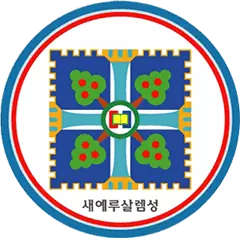
by Bitter Winter — Scholars and human rights activists protest the scandal of the rental of a park by Shincheonji cancelled at the last minute on a pretext after a slander campaign.
Dear President Yoon Suk Yeol:
We are international scholars of religion and human rights activists concerned with the increasing number of violations of freedom of religion or belief throughout the world. We admire South Korea’s rich and vibrant religious heritage and pluralism, and are grateful to the South Korean government for its participation in international efforts denouncing the violations of religious liberty in totalitarian countries.
It is equally important that democratic states do not expose themselves to the criticism that they also violate the international principles of freedom of religion or belief.
We take the liberty of writing to you to express our concern for a recent incident that, in our opinion, has violated the religious liberty of one particular religious group, Shincheonji Church of Jesus, the Temple of the Tabernacle of the Testimony (in short, Shincheonji).
We are aware of the fact that certain South Korean Christian groups consider Shincheonji “heretic.” Trading accusations of heresy is as old as religion and of course theological criticism, when it does not degenerate into hate speech and violence, is also protected by religious freedom. It is, however, another matter when religious groups ask democratic states to act as their “secular arm” to limit the liberty of the “heretics.”
Shincheonji rented Imjingak Pyeonghwa Nuri Park in Paju for a “Religious Leaders Forum and Graduation Ceremony” from October 29 to 31, 2024. The rental was approved on July 22, and the fee was fully paid on October 2 to the Gyeonggi Tourism Organization. The event was purely religious and non-political. It did not include any planned discussions of issues related to North Korea, and the local authorities were aware of it.
Around 100,000 people were expected to attend, including international guests and dignitaries. Shincheonji reportedly spent about $7 million on the event.
On October 16, Paju was designated a “danger zone” for potential North Korean propaganda via balloons or drones. On the same day, however, Shincheonji met with local authorities who confirmed their event complied with the “danger zone” regulations. This was reiterated by Gyeonggi-do authorities on October 23 and 28, who publicly stated they had no plans to cancel the event. A safety review also confirmed Shincheonji’s compliance with all regulations.

Left: Two of the signatories, Massimo Introvigne (left) and Willy Fautré (right) visiting Shincheonji’s Palace of Peace and meeting Shincheonji leader Chairman Lee Man Hee (center).
Right: Eileen Barker interviewing Chairman Lee in 2019.
Meanwhile, fundamentalist Christians submitted a petition to the local authorities, asking them to cancel the event of the “heretic” organization.
On October 29, as the event was set to begin and most attendees had arrived in Paju, Gyeonggi-do Governor Kim Dong-Yeon canceled it, citing concerns it would “provoke North Korea.” The North Korean reference was clearly a pretext, as other mass events in Paju were regularly held.
The U.S. Commission for International Religious Freedom and other international religious freedom watchdogs have already denounced discriminations against Shincheonji in South Korea in the past. That these discriminations continue is intolerable in a democratic country.
The United Nations Human Rights Committee in its General Comment no. 22 of July 30, 1993, to article 18 of the International Covenant on Civil and Political Rights stated that “Article 18 is not limited in its application to traditional religions or to religions and beliefs with institutional characteristics or practices analogous to those of traditional religions. The Committee therefore views with concern any tendency to discriminate against any religion or belief for any reason, including the fact that they are newly established, or represent religious minorities that may be the subject of hostility on the part of a predominant religious community.”
As friends of both South Korea and of freedom of religion or belief, we respectfully ask that the Paju incident be investigated, and measures be taken to prevent any further instances of discrimination against Shincheonji and other minority groups and to compensate Shincheonji for the significant loss suffered because of the unfair treatment received.
November 12, 2024
Alessandro Amicarelli, President, European Federation for Freedom of Belief (FOB), London, UK
Eileen Barker, Professor Emeritus of Sociology of Religions, London School of Economics, London, UK
Luigi Berzano, Professor of Sociology of Cultural Processes, University of Turin, Italy
Stephen Eric Bronner, Director, International Council for Diplomacy and Dialogue, Paris, France
Francesco Curto, President, Fedinsieme (Faiths Together), Turin, Italy
Raffaella Di Marzio, Director, The Center for Studies on Freedom of Religion Belief and Conscience (LIREC), Rome, Italy
Willy Fautré, Director, Human Rights Without Frontiers, Brussels, Belgium
Holly Folk, Professor of American Religious History, Western Washington University, Bellingham, WA, USA
Massimo Introvigne, Managing Director, Center for Studies on New Religions (CESNUR), Turin, Italy
Karolina Maria Kotkowska, Assistant Professor, Centre for Comparative Studies of Civilizations, Jagiellonian University, Krakow, Poland
Camelia Marin, Deputy Director, Soteria International, Copenhagen, Denmark
J. Gordon Melton, Distinguished Professor of American Religious History (retired), Baylor University, Waco, Texas, USA
Hans Noot, President, Gerard Noodt Foundation for Freedom of Religion or Belief, Langenboom, The Netherlands
Marco Respinti, Director-in-charge, “Bitter Winter” magazine, Milan, Italy
Bernadette Rigal-Cellard, Professor Emeritus in North American Studies and Religious Studies, University of Bordeaux Montaigne, France
Rosita Šorytė, President, International Observatory for Religious Freedom of Refugees (ORLIR), Turin, Italy
Thierry Valle, President, Coordination des associations et des particuliers pour la liberté de conscience, Paris, France
María Vardé, Institute of Anthropological Sciences, Faculty of Philosophy and Letters, University of Buenos Aires, Argentina
Martin Weightman, Director, All Faiths Network, London, UK
Catherine Wessinger, Rev. H. James Yamauchi, S.J. Distinguished Professor of the History of Religions, Loyola University New Orleans, LA, USA
Peter Zoehrer, Executive Director, Forum for Religious Freedom (FOREF), Vienna, Austria
Published also in Bitter Winter





